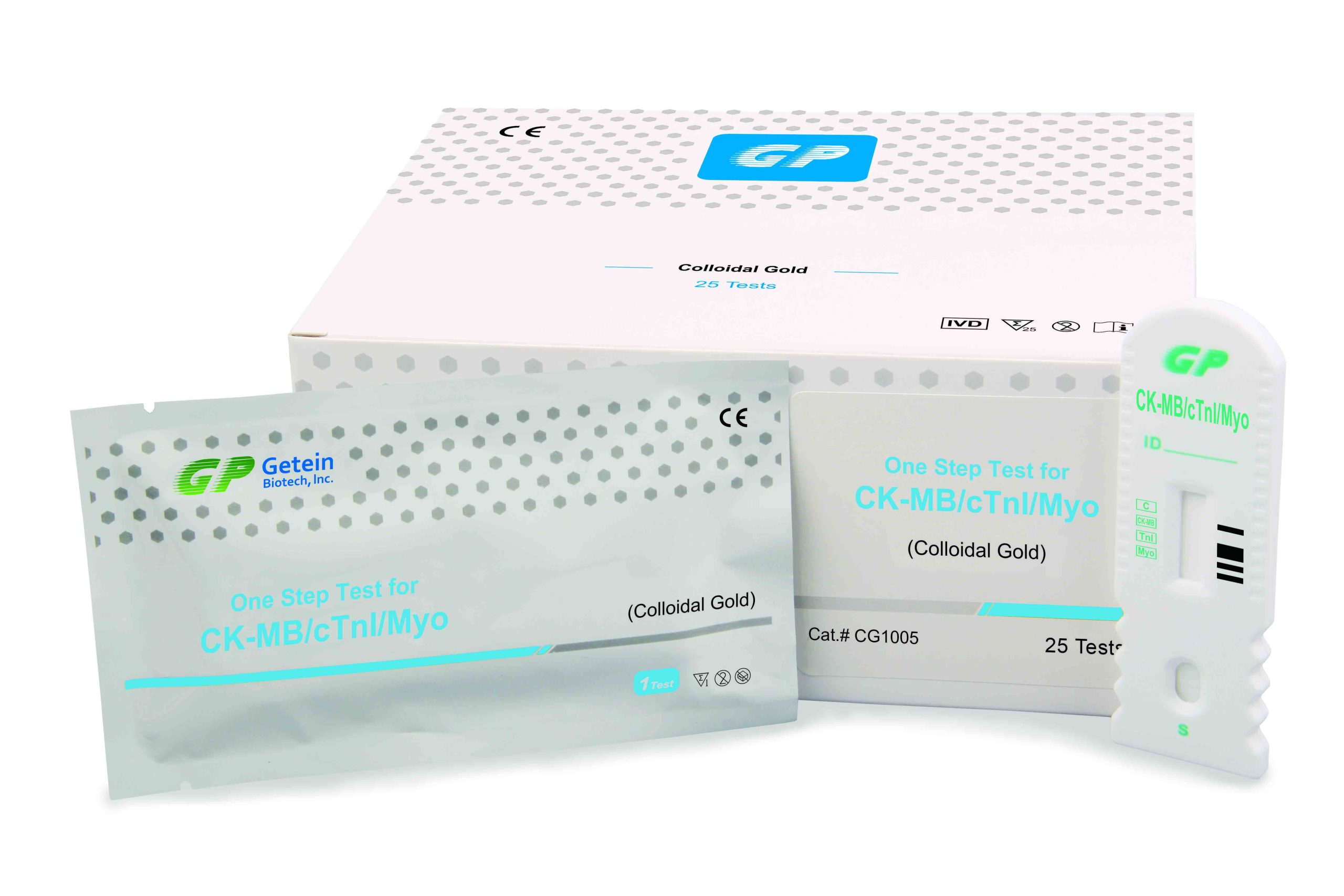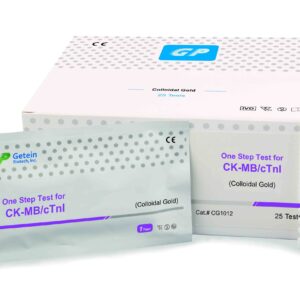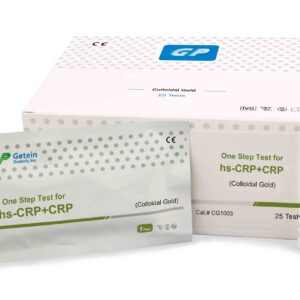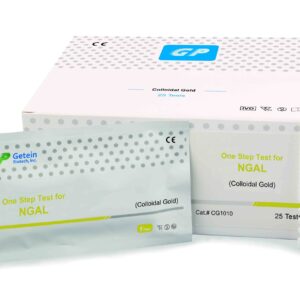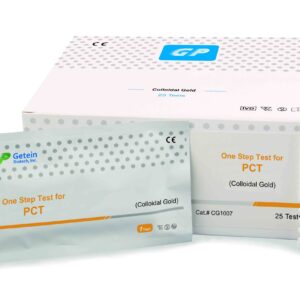Description
Creatine kinases are dimer isozymes composed of two monomer subunits, CK-M (for skeletal muscle derived) and CK-B (for brain derived), which can form all three combinations of monomers:
CK-BB, CK-MM, and CK-MB. BB is found primarily in the brain.
Skeletal muscles primarily contain the MM isoform, with trace amount of MB (around 1-4% of total CK activity). Cardiac muscles also contain the MM isoform, but higher amount of MB, typically around 20% of total CK activity. CK-MB is a more sensitive marker of myocardial injury than total CK activity, because it has a lower basal level and a much narrower normal range. Medical literatures commonly state that CK-MB levels are elevated in 4 to 6 hours, peak at 10 to 24 hours, and return to normal within 3 to 4 days after an acute myocardial infarction. Classically, an increase of the myocardial-specific enzyme CK-MB is considered as the hallmark of acute myocardial infarction, and increased levels are frequently interpreted by the clinician as objective evidence of myocardial cell damage.
Troponin complex consists of three regulatory proteins: T, which connects the troponin complex and tropomyosin (another cardiac muscle regulatory protein); I, which prevents muscle contraction in the absence of calcium; and C, which binds calcium. Cardiac troponin I (MW 22.5 kDa) and the two skeletal muscle isoforms of troponin I have considerable amino acid sequence homology, but cTl contains an additional N-terminal sequence and is highly specific for myocardia.
Clinical studies have demonstrated the release of cT into the blood stream within hours following acute myocardial infarctions (AMI) or ischemic damage. Elevated levels of cT are detectable in blood within 4 to 6 hours after the onset of chest pain, reaching peak concentrations in approximately 8 to 28 hours, and remain elevated for 3 to 10 days following AMI. Due to the high myocardial specificity and the long duration of elevation, cT has become an important marker in the diagnosis and evaluation of patients suspected of having an AMI.
Myoglobin is a small monomeric protein which serves as an intracellular oxygen storage site. It is found in abundance in the muscle and can get through into the blood circulation directly when myocardial cell is damaged mildly. Therefore, myoglobin has been advocated as a sensitive marker for early acute myocardial injury by American College of Cardiology Committee.

